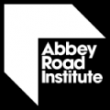Making Sense of the Live Music Census
The UK’s first live music census has found that the grassroots gig circuit is thriving, while reiterating threats facing its long-term future.

The census was conducted in March 2017 by researchers from the Universities of Edinburgh, Newcastle and Turku in Finland. Surveys were conducted in Brighton, Glasgow, Leeds, Liverpool, Newcastle-Gateshead, Oxford, and Southampton.
According to the results, one in three of the small music venues surveyed said they had experienced problems with property developments, which can cause noise complaints from people living nearby. In addition, one third of the nearly 200 venues surveyed reported that increases in business rates were having a negative impact.
The thing is, we sort of got the message on this one from the extensive campaigning by Music Venues Trust, UK Music et al., that resulted in the UK Government committing to enshrine the ‘Agent of change’ principle to offer protection to venues. As previously reported, developers will need to account for the impact of any new scheme on pre-existing businesses before going ahead with their plans.
Dr Matt Brennan, from the University of Edinburgh’s Reid School of Music commented: “This survey is the largest of its kind in the UK. We hope it can influence the valuable contribution live music makes to wider society and help support the protection of the live music ecology.”
Converse to some of the earlier points, the findings reveal a thriving grassroots scene: Over three quarters of people surveyed had visited small music venues (defined for the purposes of this as those with a capacity of up to 350 people) during the past year, and 74% had visited pubs and bars for live music.
Findings show that the total spend of people at live music events contributes significant sums to local economies – £78.8 million annually in Glasgow, £43.3m in Newcastle-Gateshead and £10.5m in Oxford. Just under half of the 4,400 people surveyed spend more than £20 on tickets for concerts or festivals each month.
The report also recommended that the UK Government continues to investigate secondary ticketing via the Competition and Markets Authority and that the Digital, Culture, Media and Sport Committee, with just 0.4% of respondents saying that they bought a ticket to a music event for the purpose of reselling it at a profit in the last 12 months.
Sources:
This survey is the largest of its kind in the UK. We hope it can influence the valuable contribution live music makes to wider society and help support the protection of the live music ecology.
Address
Coronation House, 65 Quayside, Newcastle Upon Tyne, NE1 3DE
Telephone
07706 329793
Connect with Generator
© Generator 2024 - All rights reserved.
Delivered with Cargo Creative














